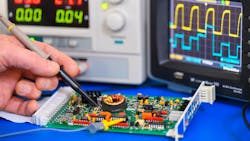Optical Sensors: Apply Reliability Strategies to Drive Smart Component Selection (.PDF Download)
For designers of engineered electronics powering our most critical applications and devices, reliability is a common goal. At the same time, a design engineer or purchasing manager must have the ability to quantify reliability of the parts selected—a delicate balance between performance and dependability—to optimize total cost of ownership. On this landscape, a greater understanding of mean time between failure (MTBF) considerations can improve both reliability and costs.
Purchasing professionals at such organizations are all too familiar with budgets and the steps required for correlated selection and sourcing. Still, they may have limited insight into how to evaluate reliability reports, how to ensure statistically similar comparison among sources and options, and how these factors may affect their product design and development. Will a commercial-off-the-shelf (COTS) part suffice, or is S-Level (space-rated) required? Are all parts designated for a particular level the same amongst suppliers? And is MTBF data inherently reported in similar fashion from study to study and vendor to vendor?
